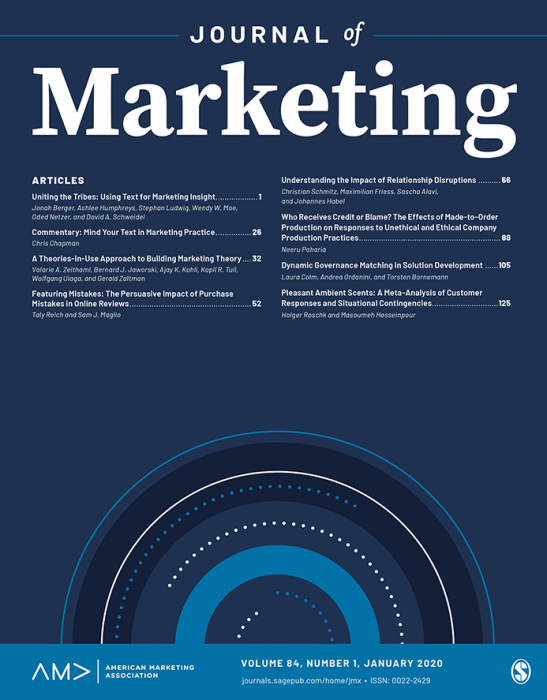EXPRESS: From Tools to Agents: Meta-Analytic Insights into Human Acceptance of AI
IF 10.4
1区 管理学
Q1 BUSINESS
引用次数: 0
Abstract
As artificial intelligence (AI) becomes more autonomous and socially present, it is critical to understand how people accept AI not just as a technological tool, but also as an agent capable of (semi-)autonomous decision-making and interaction. With a meta-analysis of 287 effect sizes representing over 119,000 individuals, this research examines the factors driving human acceptance of AI. Through a dual-perspectives framework, AI as a tool versus an agent, the authors identify key AI characteristics, including capability, role, expertise scope, and anthropomorphism, that significantly influence acceptance. These engineerable AI characteristics, along with contextual and individual factors, form an AI-task-user framework that explains AI acceptance across different use scenarios and user groups. These findings contribute to the discourse on AI acceptance and human-AI interactions: revealing a small, decreasing reluctance to accept AI and, more importantly, directing future research to empirical testing and theory building of AI acceptance from an agentic perspective. This research also provides actionable user-centered design roadmap for practitioners to develop and communicate AI features that align with human expectations and enhance positive responses, especially at a time when agentic AI is rapidly becoming a technological and societal reality.从工具到代理人:人类对人工智能接受的元分析见解
随着人工智能(AI)变得更加自主和社会化,理解人们如何接受人工智能不仅是一种技术工具,而且是一种能够(半)自主决策和互动的代理,这一点至关重要。这项研究对代表11.9万多人的287个效应量进行了荟萃分析,探讨了推动人类接受人工智能的因素。通过人工智能作为工具与代理的双重视角框架,作者确定了人工智能的关键特征,包括能力、角色、专业范围和拟人化,这些特征对接受度有重大影响。这些可工程的人工智能特征,以及上下文和个人因素,形成了一个人工智能任务-用户框架,解释了不同使用场景和用户群体对人工智能的接受程度。这些发现有助于对人工智能接受度和人类与人工智能交互的讨论:揭示了人们对人工智能接受度的小而减少的不情愿,更重要的是,从代理的角度指导未来研究对人工智能接受度的实证测试和理论构建。这项研究还为从业者提供了可操作的以用户为中心的设计路线图,以开发和传达符合人类期望的人工智能功能,并增强积极的反应,特别是在人工智能正迅速成为技术和社会现实的时候。
本文章由计算机程序翻译,如有差异,请以英文原文为准。
求助全文
约1分钟内获得全文
求助全文
来源期刊

Journal of Marketing
BUSINESS-
CiteScore
24.10
自引率
5.40%
发文量
49
期刊介绍:
Founded in 1936,the Journal of Marketing (JM) serves as a premier outlet for substantive research in marketing. JM is dedicated to developing and disseminating knowledge about real-world marketing questions, catering to scholars, educators, managers, policy makers, consumers, and other global societal stakeholders. Over the years,JM has played a crucial role in shaping the content and boundaries of the marketing discipline.
 求助内容:
求助内容: 应助结果提醒方式:
应助结果提醒方式:


